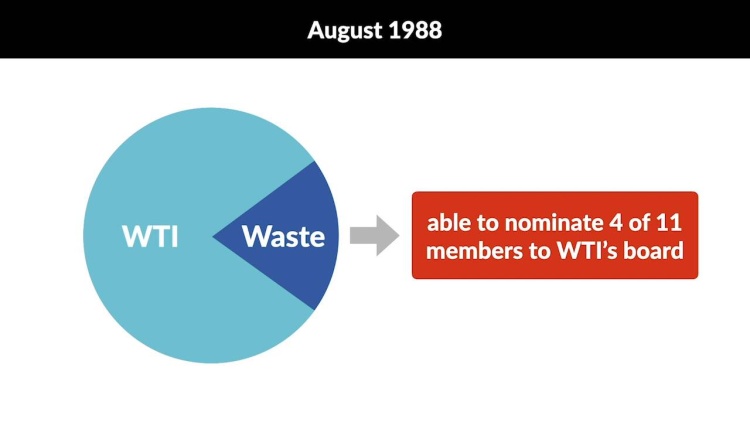In re Wheelabrator Technologies, Inc. Shareholders Litigation
Delaware Court of Chancery
663 A.2d 1194 (1995)

- Written by Sean Carroll, JD
Facts
Wheelabrator Technologies, Inc. (WTI) (defendant) developed and produced refuse-to-energy services. Waste Management, Inc. (Waste) provided waste-management services. In 1988, WTI and Waste entered into a transaction under which Waste came to own 22 percent of WTI's shares. Waste was WTI's largest stockholder as a result of this transaction. The two companies continued to discuss ways to work together, and in March 1990, Waste proposed a merger. The two companies negotiated a merger agreement, which was approved by WTI’s board of directors (defendants) and a majority of WTI shareholders other than Waste. Some WTI shareholders (plaintiffs) brought suit, claiming, among other things, that the board of directors breached their fiduciary duty of loyalty because a majority of the directors had a conflict of interest that prevented them from seeking or obtaining the best value for WTI's shareholders in the merger. The defendants filed a motion for summary judgment seeking dismissal of the plaintiffs' claims. The defendants argued that the fully informed shareholder vote approving the merger ratified the directors' negotiation and approval of the merger and thus extinguished the plaintiffs' breach-of-loyalty claim based on the directors' conduct. The plaintiffs opposed the motion. The plaintiffs argued, among other things, that the merger was an interested transaction that should be judged under the entire-fairness standard of review, and the only impact of the shareholder ratification was to shift the burden to the plaintiffs to prove that the merger was unfair to WTI.
Rule of Law
Issue
Holding and Reasoning (Jacobs, J.)
What to do next…
Here's why 904,000 law students have relied on our case briefs:
- Written by law professors and practitioners, not other law students. 47,100 briefs, keyed to 995 casebooks. Top-notch customer support.
- The right amount of information, includes the facts, issues, rule of law, holding and reasoning, and any concurrences and dissents.
- Access in your classes, works on your mobile and tablet. Massive library of related video lessons and high quality multiple-choice questions.
- Easy to use, uniform format for every case brief. Written in plain English, not in legalese. Our briefs summarize and simplify; they don’t just repeat the court’s language.





